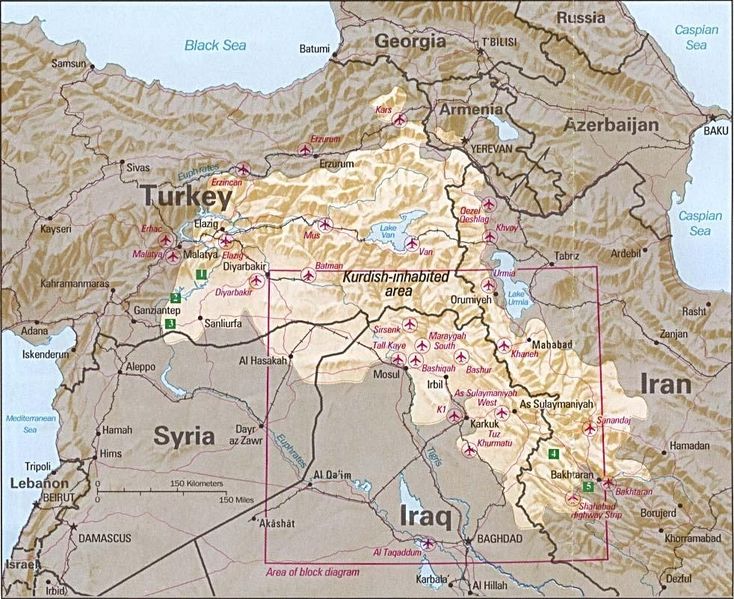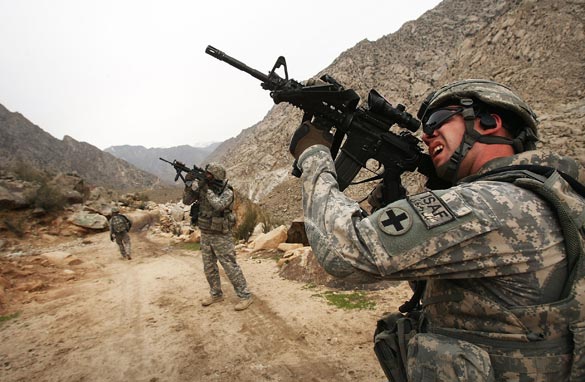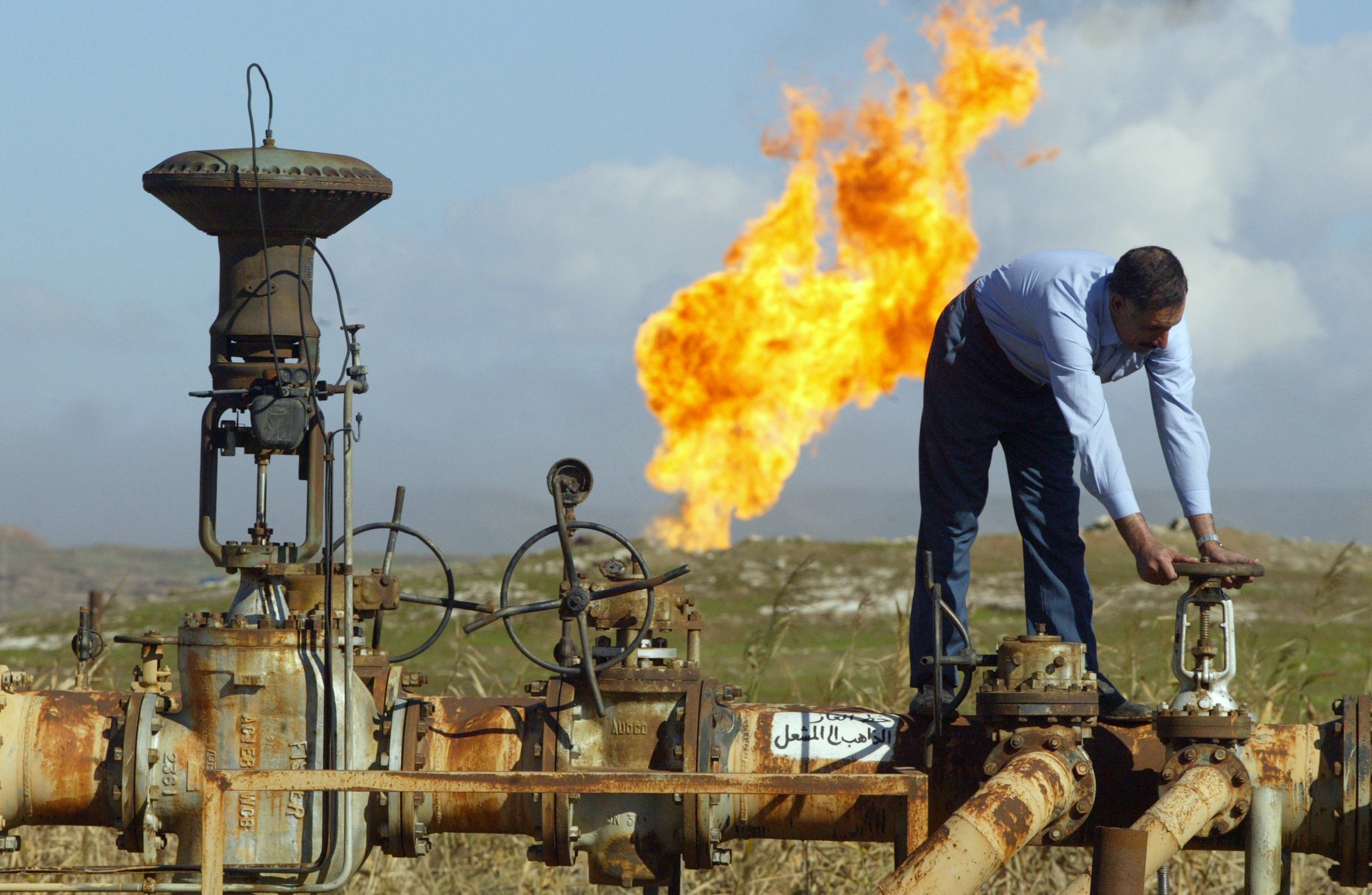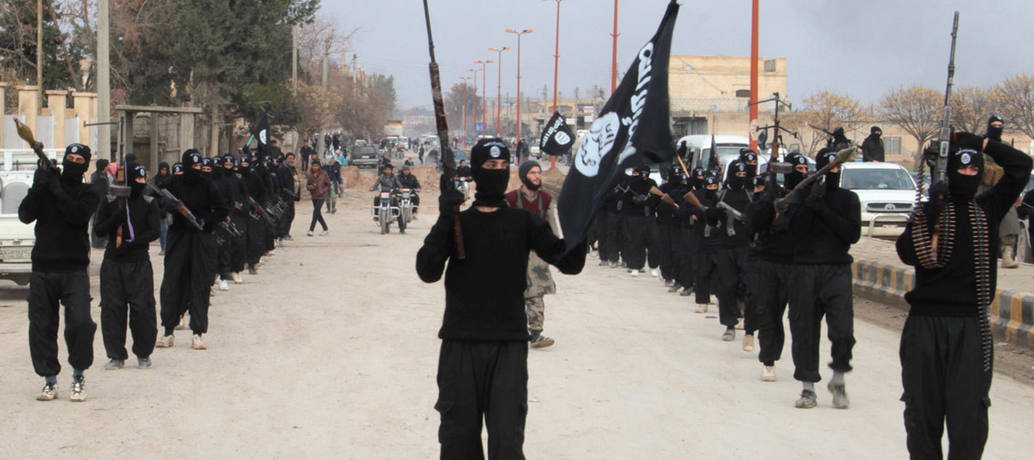The Kurds are back in the news and so is talk of an independent Kurdistan. Hundreds of Kurdish prisoners in Turkey have been on a hunger strike for over a month. Their demands are equal Kurdish language rights in education and in courts, as well as the release of Abdullah Öcalan, leader of the infamous Kurdish Worker’s Party (PKK). In Turkey, public solidarity with the Kurdish hunger strike has led to protests in Istanbul, which police have confronted with tear gas and water cannon. Lately, editions of Foreign Affairs and The Economist include articles on the booming oil industry in Kurdish Iraq and the hopes of an independent Kurdistan that it portends.
So it seems that little excuse is needed to revisit some of the more recent history of the Kurds and the idea of an independent Kurdistan. The Kurds — especially those in northern Iraq — are arguably better off now than any other Near Eastern minority without a state. But recently their very existence was threatened first by international neglect and secondly by efforts to exterminate them.
Kurdish troubles began with the dismemberment of the Ottoman Empire after the First World War. Territory largely inhabited by Kurds was divided amongst what are now Turkey, Iran, Syria, and Iraq. Turkey was especially hostile to an independent Kurdistan along its eastern border, and so most of Kurdish territory was kept under Turkish control.[captionpix align=”left” theme=”elegant” width=”320″ imgsrc=”http://www.institutkurde.org/en/kurdorama/kurdistan/kurdistan_flag.gif” captiontext=”The flag of Kurdistan.”]
In 1920, under the leadership of American president Woodrow Wilson, the Treaty of Sèvres provided for an autonomous Kurdish region which would eventually gain full independence. But this treaty was never ratified. Instead the 1923 Treaty of Lausanne forced the Turkish Republic to give up a large portion of what became British Iraq in 1926 — without any mention of the Kurds. From this moment on, conflict never ceased between Kurds and the Iraqi government at Baghdad.
It was the famous Oxford blue-stocking, Gertrude Bell, who insisted upon the inclusion of the Kurds in the new Iraq. This was much to the dismay of one Winston Churchill who would have preferred, at least in principle, an autonomous Kurdistan. Almost prophetically he expressed the fear that a future ruler of Iraq ‘would ignore Kurdish sentiment and oppress the Kurdish minority’.
Toward the end of the twentieth century, international attention only came to the Kurds in the grim twilight of Saddam Hussein’s war with Iran. This period saw the indiscriminate and genocidal slaughter of Kurds by poison gas at Halabja on 16 March 1988. American president George H. W. Bush encouraged a Kurdish insurrection against Saddam but gave no military support until the Iraqi regime cracked down violently on the uprising. A no-fly zone in northern Iraq was the result in 1991: the first serious western effort to protect Kurds in any way.
By 1992, Kurds had in large measure reestablished their autonomy, by way of parliamentary elections. But Kurdish internecine political strife threatened to derail the progress that had been made, and Turkey looked on with suspicion and established a trade embargo upon the Kurdish autonomous region.
The fall of Saddam Hussein in 2003 seemed to present the Kurds with another opportunity. Kurds might well have played a large role in the construction of a liberal, pluralist, and decentralised Iraq. But it was not to be. Writing in Foreign Affairs this month, Joost R. Hiltermann ascribes this failure to American ‘inexperience in state-building, cultural ignorance, heavy-handed management, and high turnover in personnel’. Whether this is true or not, Kurds would have been understandably reluctant to wade into an ever-worsening sectarian conflict centered on Baghdad.
But it can hardly be said that Kurds have been uninvolved in the political life of Iraq. Since 2006, Iraq’s president, one of its deputy prime ministers, its foreign minister, and chief of the armed forces have all been Kurds. And yet Kurdish commitment to the new regime continues to be eroded by the perseverance of some of the worst features of Saddam’s Iraq: nepotism, mutual distrust, and authoritarian rule have carried on, and the state has remained highly centralised. Finally, the Sunni-Shiite war of 2005 led to increased authoritarianism, and serious agitation for an independent Kurdistan grew apace.
In 2007, Iraqi Kurds began to develop their own hydrocarbon industry in total defiance to the government at Baghdad. Though this was received with alarm by the federal government, Kurds may now congratulate themselves on having taken a large step towards statehood. It must be said, though, that Kurdish aspirations would appear more credible were the Kurdish region not receiving 17% of Iraq’s federal budget annually.
The interesting thing for Kurds of all countries is that, since 2008, Turkey has worked to form close economic ties with the Kurdish Regional Government in Iraq. Moreover, Turkey has opened its border, and has encouraged investment in the Kurdish region of Iraq. Meanwhile Turkish relations with Baghdad have deteriorated. Turkey surely fears Kurdish irredentism — especially if the PKK were involved, which they certainly would be. Could it be, though, that Turkey is more afraid of being denied access to Kurdish oil?
In any case, Massoud Barzani, president of the Iraqi Kurdish region, has offered Turkey good incentive to turn away from Baghdad. More than one million barrels of oil a day though pipelines which are now under construction are perhaps the main incentive. But a peaceful frontier and a stable buffer between Sunni Turkey and Shiite-dominated Iraq must rank high also — as Hiltermann probably rightly claims.[captionpix align=”right” theme=”elegant” width=”320″ imgsrc=”http://i.telegraph.co.uk/multimedia/archive/02004/iraq_2004226b.jpg” captiontext=”A Kurdish Oil Worker in Northern Iraq.”]
Recently, ExxonMobil, Chevron, Total, and Gazprom have all signed exploration contracts with the Kurdish Regional Government of Iraq, and the economic boom goes on. And relations between Baghdad and the Kurdish regional government are at their lowest ebb: last June, for instance, Kurdish president Barzani tried (unsuccessfully as it turned out) to remove Iraqi Prime Minister Nouri al-Maliki through a vote of non-confidence.
Exactly how this will play out in the long term is far from clear. Much may depend upon how the Syrian civil war resolves itself: Syrian Kurds, perhaps eager to escape the chaos of civil war or its aftermath, would almost certainly make common cause with fellow Kurds across the border — whether they hold sway over an independent country or not. The nightmare scenario of population transfer and integration might then assert itself, and this is to say nothing of how Kurds in Iran or Turkey might react to an increasingly rich and assertive Iraqi Kurdish area. But if economic development in Iraq’s Kurdish region continues to outpace that of the rest of Iraq (and all signs suggest that it is going to), then there may be little that anyone can do to prevent the formation of an independent Kurdistan.
If it ever came to pass, this would be a development which Canada might wisely choose to look on with indifference. But this would be impossible, as our NATO-ally Turkey would probably demand that we share its position — which would be unsympathetic to encouraging Kurdish nationalism anywhere. Similarly, Canada would wade into a separatist movement in a foreign country at great danger to itself, and our lack of involvement in the last Iraq war may imply that we have no real stake in the region at all. But I would suggest that if the breakup of Iraq seems inevitable, to try to hold together so artificial a country will be futile and possibly disastrous. With this in mind, active support for an independent Iraqi Kurdistan would be pointless.
Where we should direct our support and attention is to the Kurdish minority in Turkey. With or without a fully independent Kurdistan to the south, life would arguably be much easier for Turkey and the ‘Kurdish Question’ if Kurds were granted the equal language rights that they have lately been demanding. This might take some of the wind out of the PKK’s sails and perhaps put a damper on violent agitation for independence. It might also make the prospect of uniting with Iraqi Kurds less appealing. It is along these lines that Canada should indeed lobby Turkey to respect its Kurdish minority and grant its more reasonable requests. But we must do so without appearing to favour the PKK, which is rightly classed as a terrorist organisation. So the matter is delicate to say the least.
It is not impossible that the Kurds will be one of the dominant groups in a post-Arab Spring Near East. For the moment nothing is certain. But I strongly suspect that we will be hearing more and more from the Kurds in future.




